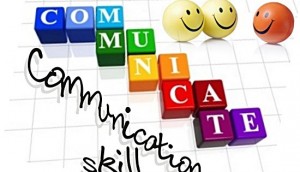 Ever embarrassed yourself by giving imprecise or carelessly ambiguous information? I have.
Ever embarrassed yourself by giving imprecise or carelessly ambiguous information? I have.
My major gaffe was as a young graduate in my first professional role. The reaction I received to my waffling was severe and thankfully proved a valuable epiphany.
Fortunately, I was in an after-work situation, but talking loosely about what was a complex, job-related technical issue.
I was corrected, admonished and appropriately lectured by an older, more seasoned peer. It turned out to be one of the best lessons I’ve ever learned; never resented the chiding even as it occurred.
At the time I was coming newly from academia, enamored with glib word usage and style, characteristic of a less demanding, largely non-critical and more forgiving environment.
My new work outside of this needed a more disciplined and precise style of communication. I was fortunate to have learned this early on. It was a rapid and effective cultural adjustment.
Now, business usually demands greater rigor, orientated around rapid problem-solving.
Yet even today, most people I meet tend towards imprecise conversation and communication. It’s just easier and less demanding.
Also, many cultures seem to revere a more relaxed delivery and statement. Demonstrating an unhurried, manana (Spanish lang.) approach is often considered more polished, even sophisticated.
But there are times when precision and accuracy are important; indeed, they are essential.
For Example: Ever been burned by someone who’ll “see you by noon.” What does this even mean? This is not helpful if you then need to hang around wondering if the term implies a 9-12 window, or maybe not long after 12 o’clock (?). It’s virtually impossible to know what is intended.
Now perhaps it does not matter so much if this person’s (say) arriving at your house for an afternoon or evening social event, but if it’s to an office meeting where folks must be on-call, juggling lunch… well, it’s a mess. It’s inconsiderate.
Similarly, consider any situation where someone is trying to solve an important and urgent problem. They don’t want to hear your feelings and suspicions about an event, they need to know WHAT happened, WHEN, WHERE and to what EXTENT.
When you routinely fail to provide appropriate (aka essential and/or required) details you are likely to appear either foolish, unconcerned, indifferent, uncalibrated, inconsiderate or even unintelligent. Such behavior just seems flakey.
It is wise to communicate with the clarity and precision the situation demands.
It is unwise to fail to recognize such situations in BOTH business and personal settings.
Circumstances are worsened further when people are reasonably pressed for clarification and their apparent prevarications continue. This is easily taken as insensitivity or aloofness.
Being sensitive to the informational needs of others is often just common courtesy.
The burden on those requiring facts and accuracy can be profound, too. They typically press for details
out of necessity, not some misguided need to control (though this can occur).
Demanding clear communication from others can be exhausting. It is often essential.
Relationships, businesses and friendships are built on trust, which requires clear communication.
Sometimes it IS appropriate to relate matters in terms of feelings and opinions. But when specific problems must be resolved hard facts need to emerge.
Encouraging others to communicate more clearly can be done in a several ways. These revolve around either gently and systematically routinely questioning inputs to seek such clarity, or outright demanding such delivery.
The former approach conditions behavior and grows awareness, whereas the latter seeks immediate compliance.
Training a behavior though awareness is the most congenial approach.
Demanding accurate, concise communication is sometimes essential. It may however require later follow-up, social repairs or explanation.
In most cultures, business, time pressure and the requirement to get results will not allow participants to wander about with waffling communication styles.
In truth, precision for its’ own sake is seldom required. Yet when accuracy really IS REQUIRED, do NOT be the person offering vagaries.
Do you need to seriously improve the way you communicate with others? Are you frustrating relationships with your lack of clarity?
Should you speak to a worker or colleague about their frustrating imprecision? Is there specific guidance you might provide to improve such weaknesses in others?
Carefully consider how these issues affect your professional and personal lives. Perhaps now is the time to address the problems before frustration and resentments compound.
Ian R. Mackintosh is the author of Empower Your Inner Manager Twitter@ianrmackintosh
